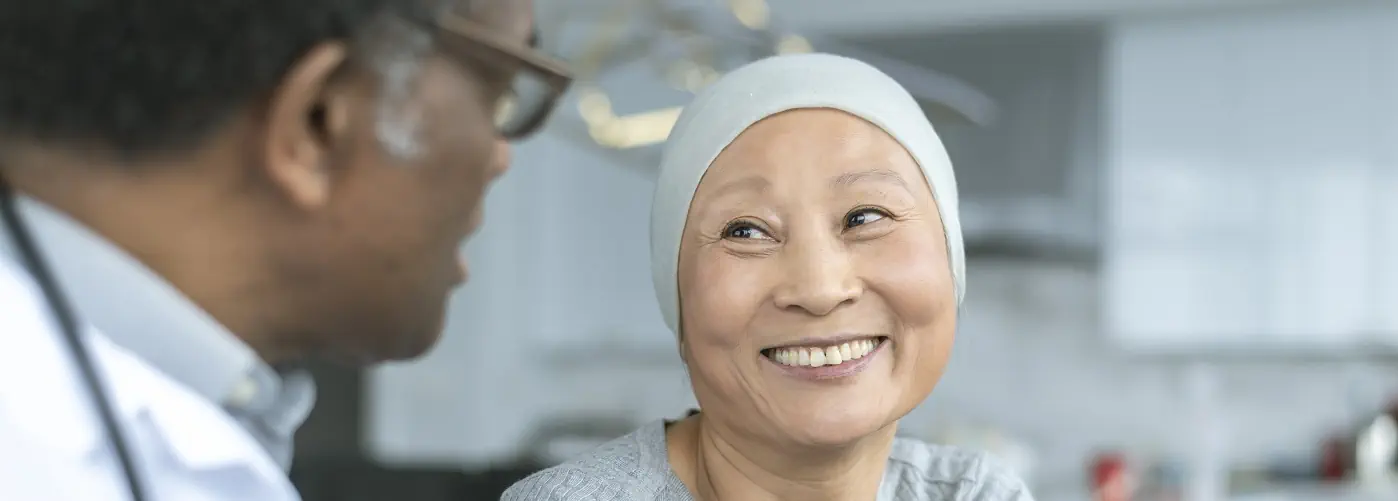Liver Cancer: Causes, Symptoms, Diagnosis, Treatment
The liver is the largest internal organ. It helps to heal wounds and absorb nutrients. Located in the upper right abdominal cavity below the ribs, this organ produces bile. It is a dark yellowish-brown fluid that helps digest vitamins, fats, and other
nutrients. The liver also stores nutrients such as glucose to keep the body nourished and functioning.

Liver cancer happens when the liver cells start to grow abnormally. Once cancer develops in the liver, it usually interferes with the liver’s function and destroys the healthy cells.
In general, liver cancer can be classified into two:
- Primary liver cancer: Originates in the cells of the liver (hepatocellular carcinoma/HCC)
- Secondary cancer: Cancer that develops in some other body parts and spreads to the liver (metastasis)
Liver cancer is the eighth most common cancer for both genders in Malaysia. It is also a cause of premature deaths in the country. In 2020, the total number of liver cancer cases reported in Malaysia was 2,149, making it among the top 5 in the list of
cancers affecting Malaysians.
Causes of liver cancer
The main causes of liver cancer include:
- Chronic hepatitis B infection
- Chronic hepatitis C infection
- Liver cirrhosis (liver scarring)
Risk factors of liver cancer
Some of the other risk factors that may lead to liver cancer are:
- Chronic infection with hepatitis B or C virus
- Cirrhosis: A condition that causes scar tissues to form in the liver
- Certain inherited liver disease e.g. Wilson’s disease and hemochromatosis
- History of diabetes
- Non-alcoholic fatty liver disease
- Alcohol abuse
- Exposure to aflatoxins: Poisons produced by moulds that grow on crops that are not stored properly
- Smoking
- Hepatitis
- Overweight/Obesity
- Older age: Most common in elderly (> 60 years)
Signs and symptoms of liver cancer
Symptoms usually may not occur in the initial stages of liver cancer. However, as the disease progresses, more signs and symptoms will be evident.
Some of these include:
- Unusual weight loss
- Discomfort in the right upper side of the abdomen
- A hard lump in the right abdomen just below the rib cage
- Nausea and vomiting
- Loss of appetite
- Jaundice (yellowing of the skin and white part of the eyes)
- A swollen abdomen
- Fatigue
- Dark-coloured urine
Diagnosis of liver cancer
Upon experiencing some of the symptoms mentioned above, one should immediately consult an oncologist. He might recommend some of the following tests to rule out cancer:
- Physical examination: This is one of the preliminary tests done by the physician to check for liver cancer signs and symptoms.
- Biopsy: A small amount of tissue from the affected region is removed and observed under a microscope to check for abnormal cells.
- Blood tests: High alpha-fetoprotein (AFP) levels in the blood may suggest liver cancer.
- Ultrasound scan: Sound waves are used to look for the tumours.
- Computed tomography (CT) scan: This specialised X-ray captures comprehensive images of your liver, providing information on the size and location of liver tumours.
- Magnetic resonance Imaging (MRI): An MRI uses magnetic fields to produce detailed images of the internal parts of the body.
- Laparoscopy: In this procedure, a lighted, thin, flexible tube known as the laparoscope is inserted into the abdominal region through a small incision to check the liver and its surrounding tissues.
Learn more about the different types of screening and diagnostic procedures performed to diagnose liver cancer.
Treatment options for liver cancer
The following are the main treatment options:
- Cryotherapy: Freezing the tumour/cancer cells
- Chemotherapy: Drugs are administered to kill the cancer cells
- Radiofrequency ablation: The use of electric current to destroy the tumour
- Radiation therapy: Specific radiations are used to kill the cancer cells
- Immunotherapy: The body's immune system is stimulated to destroy the cancer cells
- Targeted drug therapy: The drug targets a specific abnormality in the cancer cells to destroy them
- Liver transplant surgery: Replacing the diseased liver with a healthy one from a donor
- Partial hepatectomy: Removing the liver cancer and a small part of the liver tissue
Learn more about the different types of treatment technologies to treat liver cancer.
Prevention of liver cancer

There are several ways in which you could keep your liver healthy. The following lifestyle changes can reduce your risk:
- Maintain a healthy weight
- Getting vaccinated against hepatitis B
- Quit smoking
- Avoid excess consumption of alcohol
- Avoid getting hepatitis C by not using intravenous (IV) drugs, not getting a tattoo pierced from a shop that uses unclean needles and practising safe sex
Detect to Protect!
Screening for liver cancer is recommended for people with an increased risk of having the disease, such as those who have hepatitis B or C infection and liver cirrhosis.
Liver cancer screening includes a blood test and an abdominal ultrasound examination every six months.
Make an appointment at Gleneagles Hospitals
If you are experiencing any of the symptoms of liver cancer, get in touch with us to find out more about our
Oncology Services at your nearest Gleneagles Hospital.
Gleneagles Hospital works with oncologists to assist patients through cancer treatment. The caring and multidisciplinary team of healthcare professionals are available for consultation and to provide the best care.


